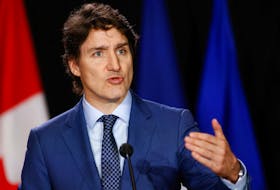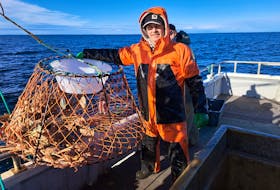Canada is about six months away from shaming itself with a report on anemic national progress toward achieving the aims of the 1989 United Nations Convention on the Rights of the Child.
Many Canadians likely think their country is about as good as it gets for kids, but the truth is, when it comes to the wellbeing of children, UNICEF ranks Canada a dismal 25th among the 41 most-developed nations (OECD).
As is frequently the case in matters of social progress, a Scandinavian nation leads the pack. This time it’s Norway. But, Canadian children are, on average, also worse off than kids in less affluent nations such as Poland, Portugal and Slovenia.
Canadian kids do have it better than their American neighbours, but finishing atop the United States is no longer a proud accomplishment, and everybody wants to stay below the US on the dubious distinctions, like violent death and guns-per-person.
The UNICEF report card measures economic, educational and environmental factors.
Canada fairs well in providing access to quality education (8th), and jobs and decent work for young people (11th); not as well in combating inequality (14th), or in providing safe, sustainable cities (19th); and abysmally (35th or lower) on child poverty, hunger and kids’ safety.
Nationally, one in five children lives in poverty, and the number climbs to one in four among First Nations’ kids; more than a million Canadian kids go to school hungry every day; one of seven homeless Canadians is a child; and one Canadian child dies every nine hours from preventable or inflicted injuries.
Nationally, our best bet to avoid the humiliation we so justly deserve seems to be to listen the kids themselves, and they have presciently made it easy for us by drafting a Canadian Children’s Charter.
Two Nova Scotians joined youth delegates from all over Canada 10 days ago in Ottawa to hammer out the draft charter. Callum Lovelace, 14, of Hammonds Plains, a grade nine student at Kings-Edgehill School, and 15-year-old Lyza Ells of Antigonish, who attends Dr. J.H. Gillis Regional High School were the province’s representatives.
Children First Canada, a national nonprofit organization that harnesses the power of children’s charities, hospitals and the private sector, worked in partnership with Wisdom2Action, a national “knowledge mobilization” initiative funded by the federal government, to put gas in the tank, but the children and adolescents — ages 10 to 18 — are driving and drafting the charter.
The document that came out of Ottawa was the work of 40 culturally-diverse kids from across the land, but it follows months of regional and national discussions.
It is a call to action for all Canadians and a remarkable statement of citizenship for and by Canadians under the age of 18.
“We envision a Canada where children’s voices are empowered, and children are valued as equal citizens, decision-makers and leaders in Canadian society,” reads the first of 12-declarations on matters that the drafters said require urgent action if Canadian children are to thrive.
These kids are not asking to vote or for the keys to Parliament, but they do want in.
The charter calls on governments and communities to put in place processes that allow children and youth meaningful input and equitable involvement in matters of concern to them, and that’s more than we give them credit for.
That seems more than reasonable. It seems overdue.
The charter goes on to declare children’s rights to health and health care, and specifies mental health services and support for substance abuse. They want an end to discrimination and exclusion, to bullying, violence and abuse of all kinds, and they want a stable and sustainable future.
The charter calls not merely for access to technology, but for a responsible, thoughtful social and legal framework for positive technological advancement. Is anybody listening to these kids?
They want to celebrate Canada’s diversity and have true and meaningful reconciliation between First Nations and immigrants, which is everyone else.
Signatories to the 1989 Convention on the Rights of the Child are expected to report every five years. Canada hasn’t reported since 2009 but will in June 2018.
Meaningful action on the children’s charter may be more than Canadians can handle in six months, but the government could get a good start by creating an independent national children’s commissioner to ensure children and adolescents are heard on decisions that affect their lives.
Jim Vibert spent 10 years as a political reporter and editor with the Halifax Herald; and 14 years with the Nova Scotia government where he set up Communications Nova Scotia.









